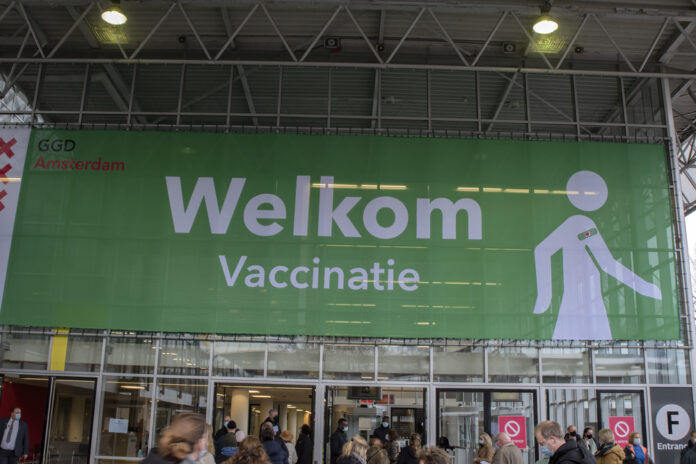Optimistic signals are heading the Netherlands’ way as the WHO reviews the state of the coronavirus in Europe — perfect timing since the Municipal Health Service (GGD) warns against future pandemics.
With the Omicron variant spreading throughout Europe, including the Netherlands, the World Health Organisation (WHO) predicts “periods of widespread immunity for many weeks and months,” says the agency’s director Hans Kluge.
By March 2022, 60% of Europeans will have been infected with the omicron variant, which when combined with the vaccination rates will create a prolonged immunity, reports the NOS.
According to the WHO’s overview, this mass immunity will lead the coronavirus to enter a manageable state or “endemic”, turning it more or less into the flu. Give us more of this optimism, please! 🎉
The Netherlands isn’t prepared for another health crisis
The GGD is also sending the Netherlands signals, not the good kind though. The Netherlands cannot afford a new health crisis, says the NOS.
The WHO predictions couldn’t have come in at a better time for the Netherlands since the GGD, the organisation responsible for testing and vaccinating individuals in the current pandemic is reported to “have been financially depressed in recent years. stripped,” states former WHO director Henk Bekedam.
Additionally, André Rouvoet, chairman of the GGD GHOR (the GGD’s umbrella organisation), expressed concerns when it comes to the shortage of infectious diseases, doctors, and the annual budget allocated for this purpose.
More preparedness = less problems
The Dutch cabinet assigns an annual €300 million for pandemic preparedness, a sum that isn’t sitting well with Rouvoet.
Initiating an urgent appeal to the Dutch parliament to adjust the budget to include €600 million instead, the director is “afraid that a lot of that money will go to establishing a crisis organisation and little will be left for public health.”
Meanwhile, Bekedam sees other points of shortage, such as having 25 separate GGD regions with separate directors and policies, and the Netherlands’ need to have better health surveillance.
What do you think of the WHO’s optimistic coronavirus outlook? Do you agree that the Netherlands should be preparing up (and better) for a future pandemic? Tell us in the comments!
Featured Image: PhotographerFromAmsterdam/Depositphotos

Yeah, let’s react inappropriatelly to every cold symptoms with massive slaugter of people, economical crisis and psychologically unstable and poorly educated generations! We are ready!